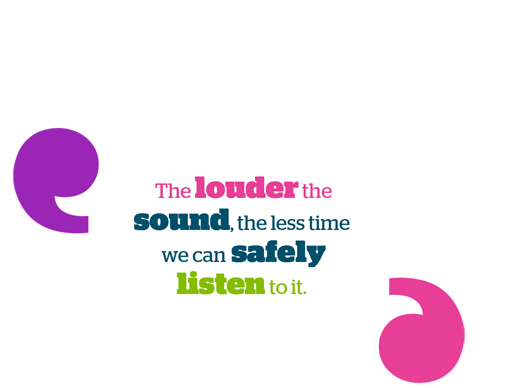Keeping our hearing healthy is largely about knowing how much loud sound we are exposed to. Most cases of deafness are caused by damage to the tiny hair cells in the inner ear. This damage can be the result of too much noise, and it is permanent. The key is to avoid loud noise. The louder the sound, the less time we can safely listen to it.
Recreational loud noise is the main problem, especially from MP3 players, such as iPods, and noisy clubs and music gigs. That's thought to be why hearing loss is increasingly affecting younger people. You can lose some hearing after being exposed to loud noise for too long, for example by standing close to speakers at a nightclub.
You’ve been listening too loudly or for too long if you have ringing in your ears or dull hearing after listening to loud music.
"The best way to avoid developing noise-induced hearing loss is to keep away from loud noise as much as possible."
Hearing loss can also lead to other accidents. If you are listening to music on an MP3 player, texting or not paying attention it could be easy to become unaware of safety. Road accidents can be caused this way.






